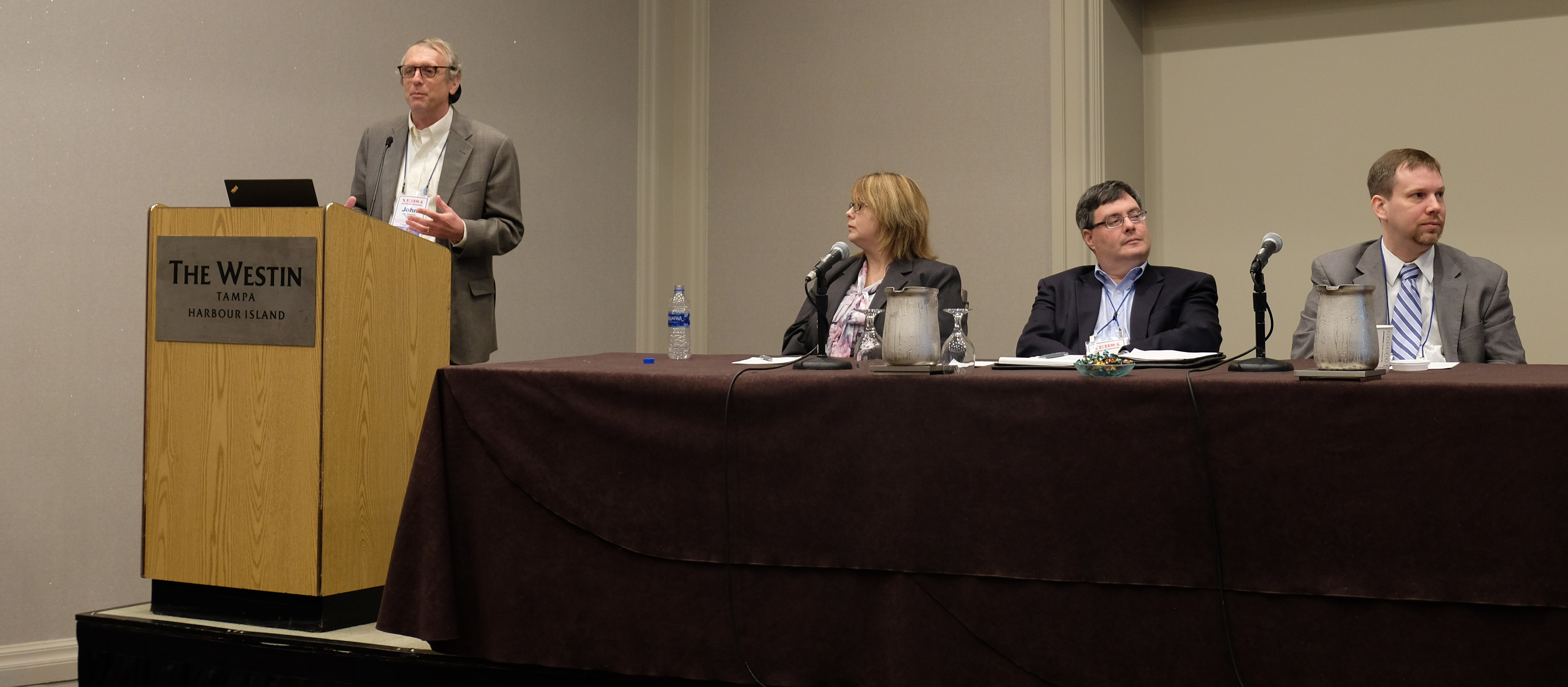February 20, 2019

The annual conference for the National Educational Broadband Service (EBS) Association (NEBSA), was held in Tampa this week. This year’s conference offered a variety of panels related to EBS regulatory policy, wireless technology, the wireless industry and the good EBS is doing.
Voqal’s own John Schwartz participated in a panel titled “Washington Update – EBS and the Sprint Merger,” where he explained how the proposed Sprint/T-Mobile merger will create a spectrum colossus in the 2.5 GHz band that will far exceed the spectrum screen in most markets. The New T-Mobile would surpass the ever valuable low- and mid-band spectrum holdings of its two national competitors, AT&T and Verizon. In addition, because New T-Mobile would control the only viable mid-band option in the market today, the merger could slow others from deploying 5G at a time when America faces fierce competition internationally.
Given this reality, divestiture is not only a significant probability but also a way to address some harms resulting from the potential merger. Schwartz advocated that determining a pro-EBS way to influence this likely scenario is a smart thing to do. Conceding that the unknowns of divestiture may create uncertainty for current licensees, Schwartz pointed out that the EBS community is left with no risk-free option at this stage. According to Schwartz, a monopsony combined with a likely “sales regime” as a result of the EBS rulemaking eliminating eligibility rules would spark the beginning of the end of EBS. Interested in learning more about Voqal’s support for partial spectrum divestiture? Click here.
Other conference sessions were devoted to sharing how members were using EBS to close the homework gap and digital divide. Mariel Triggs, the chief operating officer of Mural Net, shared the remarkable way the nonprofit is using EBS to bridge the digital divide and serve the Havasupai Tribe at the bottom of the Grand Canyon. According to Triggs, Mural Net was able to deploy a network in a few hours with about $15,000. At a time when roughly 60 percent of tribal nations lack broadband access, EBS spectrum could provide a real solution to serve underserved and unserved tribal nations. In the same session, Senior Network Engineering Chuck Ferrin shared how the University of Colorado at Boulder is using EBS to provide Wi-Fi on buses and a campus LTE network.
Between the tech talk and policy speculation, there were numerous impassioned pleas to help in the efforts to save EBS. NEBSA staff asked members to send in positive stories and help the organization’s efforts to influence the rulemaking both at the FCC and on Capitol Hill. Those interested in sharing their EBS success story can submit them here: https://nebsa.org/index.cfm/about-us/ebs-in-action-story-submission/.
All in all, it was another great NEBSA conferences and we look forward to working with the EBS community to #SaveEBS in the coming months.